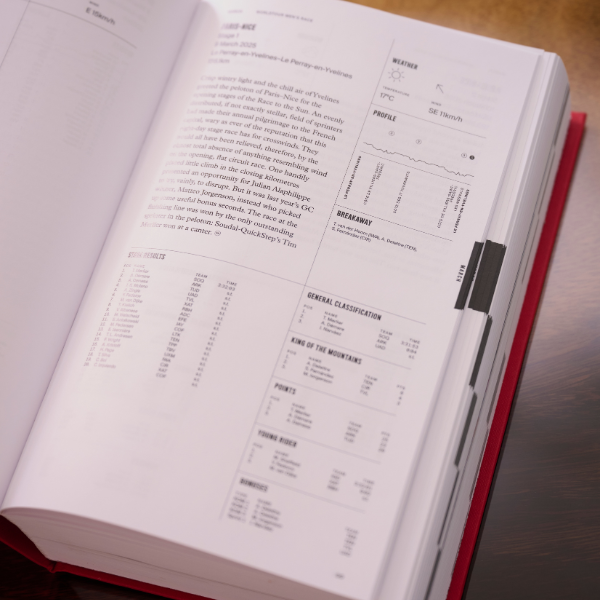Great Book. Shipping and Tariffs cost more than the book. I paid $62 for shipping and another $35 for tariff that’s outrageous
I'm the proud owner of 8 Cycling Almanacks. They never disappoint. I've already read "In the Winner's Words", the Editor's Introduction, the Essays, and the Obituaries.
It now sits on my bookshelf. The beauty of the 2025 Almanack is I have no idea when I will pick it up again. There will be a trigger at some stage that wants me to revisit the season. For example, I've just done a deep dive on 2020 and 2021 to compare where Wout Van Aert is now, compared to them.
It's brilliant.
Do not risk it! The book is lost in a cycle of being "out for delivery" and then... back to the depot. Oh, and no response from the Road Book team. I assume they are drowning in complaints. Sort it out please. £10 for delivery on top of an expensive purchase. Seriously? I'm clearly not the only one.































